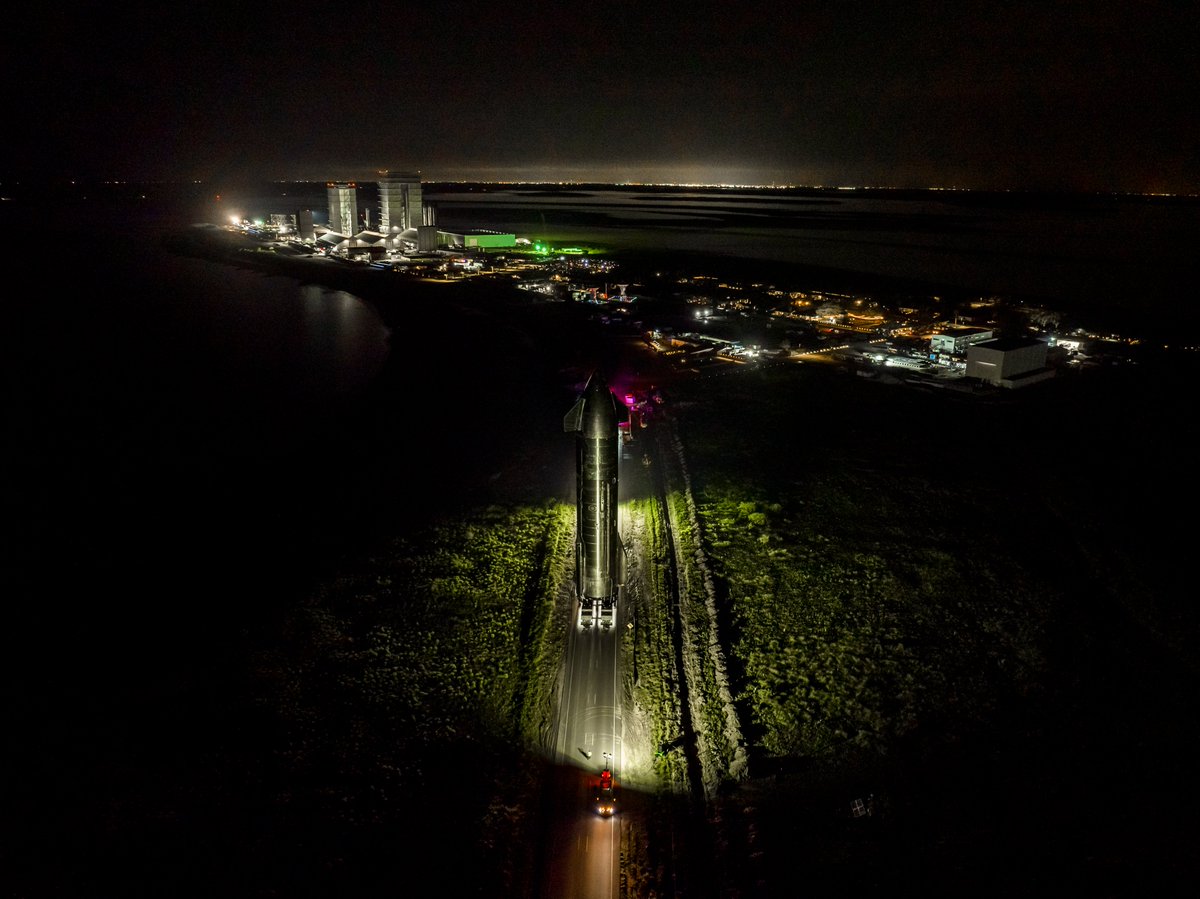
SpaceX is gearing up for another test of its giant Starship vehicle.
The company rolled Ship 25, the latest Starship upper-stage prototype, out to a suborbital pad at its Starbase site in South Texas early Thursday morning (May 18).
SpaceX will conduct a "static fire" test of Ship 25's six Raptor engines on the pad, company representatives said via Twitter on Thursday. Static fires are a common preflight test, in which a vehicle's engines are briefly lit while it remains anchored to the ground.
Related: Relive SpaceX's explosive 1st Starship test flight in these incredible launch photos
Ship 25 moved to a suborbital pad at Starbase for an upcoming static fire of its six Raptor engines pic.twitter.com/5pPGl0SlkVMay 18, 2023
Starship consists of a giant first-stage booster known as Super Heavy and a 165-foot-tall (50 meters) upper stage called Starship, both of which are designed to be fully reusable.
SpaceX envisions the vehicle taking people and cargo to the moon and Mars and taking over most, if not all, of the company's other spaceflight activities over the long haul.
A fully stacked Starship has flown just once. That highly anticipated flight, which launched on April 20 from Starbase, involved the Booster 7 Super Heavy prototype and the Ship 24 upper stage. The goal was to send Ship 24 most of the way around our planet, with a return to Earth in the Pacific Ocean near Hawaii.
That didn't happen, however; Booster 7 and Ship 24 failed to separate from each other as planned, and SpaceX commanded the vehicle's destruction high over the Gulf of Mexico a few minutes into flight.
SpaceX is gearing up for another full-stack Starship test flight, which Elon Musk has said will have similar aims to last month's mission.
The coming flight will involve the Booster 9 Super Heavy vehicle. Ship 25 is expected to be the upper stage on that mission, though SpaceX has not yet confirmed this.
There are other candidates; the company is building multiple Super Heavy and Starship prototypes at Starbase simultaneously. It plans to launch these vehicles in relatively quick succession, in keeping with the SpaceX philosophy, which prioritizes the incorporation of lessons learned during test flights.







